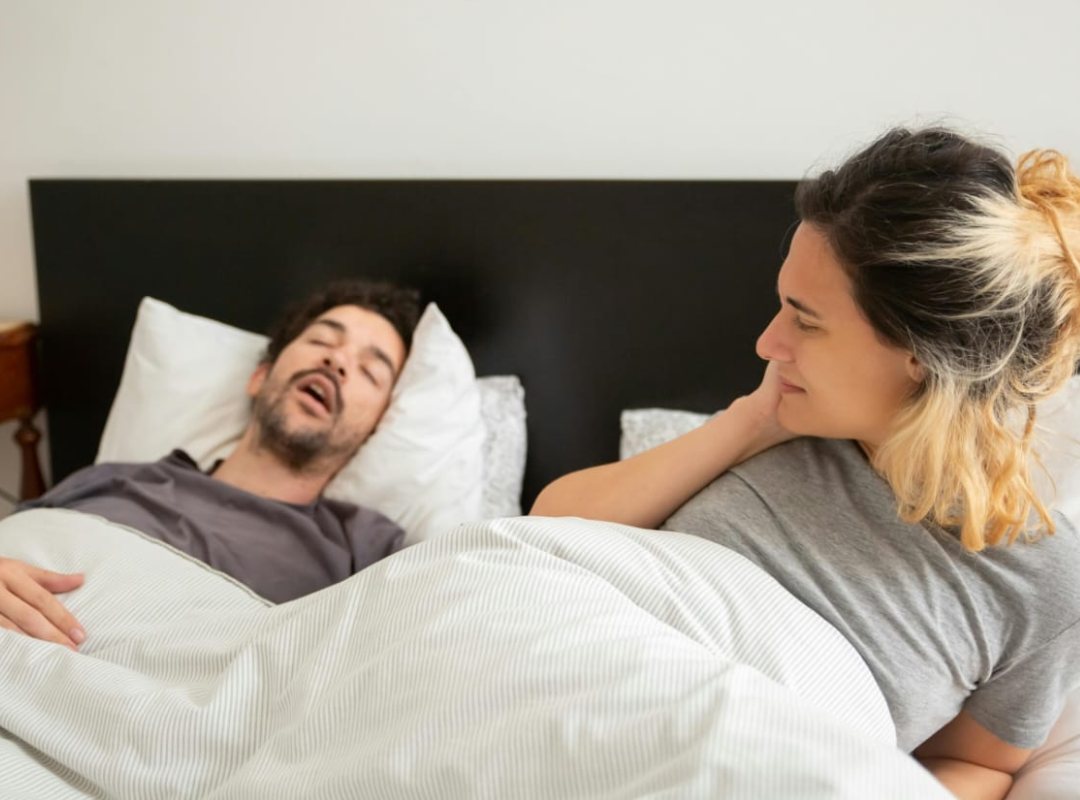Table of Contents
High blood pressure, often dubbed the “silent killer,” lurks in the shadows, silently damaging arteries and raising the risk of heart attack, stroke, and other health complications. While it rarely throws up warning signs, especially at dangerously high levels, a keen eye on your body’s nighttime cues can reveal its presence. From unusual snoring patterns to frequent bathroom visits, several telltale signs emerge during sleep, urging you to address this silent threat.

Beware the Nocturnal Rumble: Decoding Snoring’s Deeper Meaning
One of the most common nighttime indicators of high blood pressure is snoring, particularly when accompanied by pauses in breathing, known as sleep apnea. While snoring occurs due to a partially blocked airway causing vibrations in the throat, for individuals with hypertension, it signifies more than just sleep apnea. The narrowed blood vessels, a hallmark of high blood pressure, restrict blood flow, contributing to the characteristic snoring sound.

Restless Nights and Broken Sleep: When Insomnia Points to Hypertension
Stress, anxiety, and poor nocturnal hours hygiene often disrupt sleep, but did you know high blood pressure can also wreak havoc on your sleeping cycle? By interfering with the body’s natural sleep-wake rhythm, hypertension can make falling asleep and staying asleep a challenge.
Normally, our bodies orchestrate a delicate dance between sleep and wakefulness, influenced by the natural rise and fall of hormones like melatonin. However, when blood pressure remains abnormally high, this symphony goes off-key. Elevated pressure strains the cardiovascular system, triggering the body’s “fight-or-flight” response even during nocturnal hours. This surge of adrenaline and cortisol disrupts deep sleep stages, leaving you feeling restless and unrefreshed.
Frequent Awakenings and Unease: Restless Sleep as a Hypertension Clue
If you find yourself frequently waking up or experiencing restless slumbering, it could be a sign of hypertension-related issues. The elevated blood pressure triggers the body’s “fight or flight” response, leading to sudden awakenings and disrupting sleep quality.

Nocturia: When Nature Calls Too Often
Frequent urination at night, medically known as nocturia, can be another symptom of high blood pressure. Elevated blood pressure strains the kidneys, leading to increased urine production and the need to make multiple trips to the bathroom.
Headaches that Haunt Your Mornings: A Hypertension Hangover
Experiencing headaches upon waking or during the night can also be a red flag for nocturnal hypertension. These headaches tend to be most intense in the morning, as blood pressure naturally rises during sleep and peaks in the early hours.
So, if you’re plagued by persistent morning headaches, especially if they’re accompanied by other nighttime symptoms like snoring or frequent urination, don’t hesitate to talk to your doctor. Early diagnosis and effective blood pressure management can not only banish those morning migraines but also safeguard your long-term health. Remember, a good night’s rest starts with healthy blood pressure – listen to your body’s whispers and take control of your well-being.

The Missing Dip: When Blood Pressure Breaks the Nighttime Rule
Dr. Kamal Verma, Senior Consultant at Amrita Hospital, Faridabad, highlights a crucial point: “Patients with high blood pressure often don’t experience the normal nighttime dip in blood pressure readings, which is typical for healthy individuals.” This deviation from the natural rhythm signals potential hypertension and warrants medical attention.
Taking Control: Heeding the Nighttime Warnings
Monitoring these signs and symptoms, especially when they occur together, empowers you to identify potential issues with nocturnal hypertension. By seeking timely medical attention and managing your blood pressure effectively, you can mitigate the associated risks and rest soundly, knowing you’ve silenced the silent killer.



